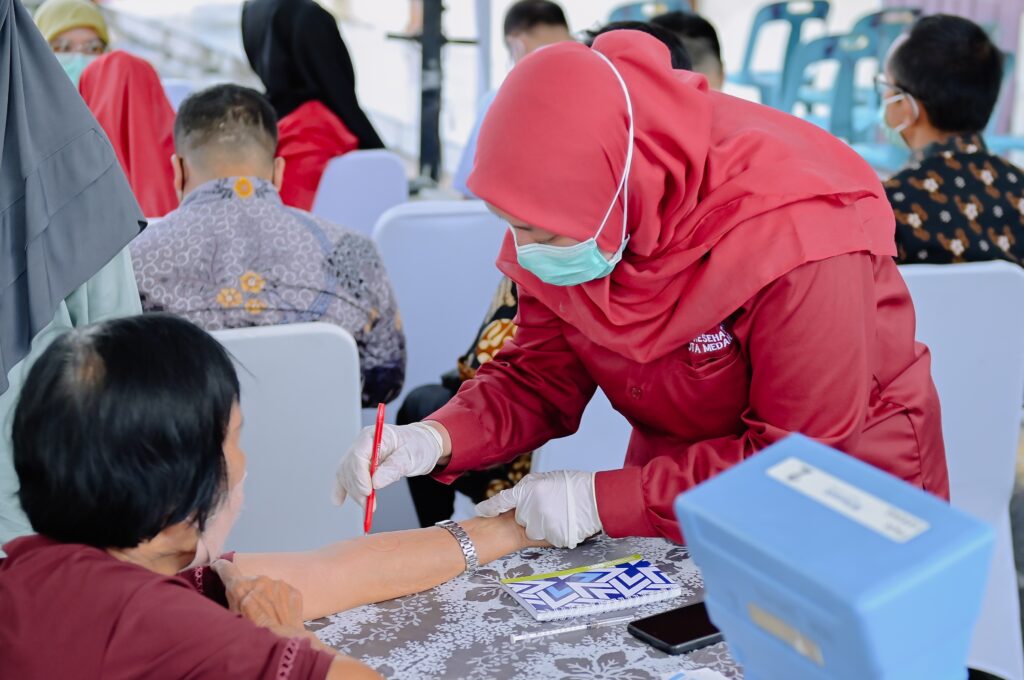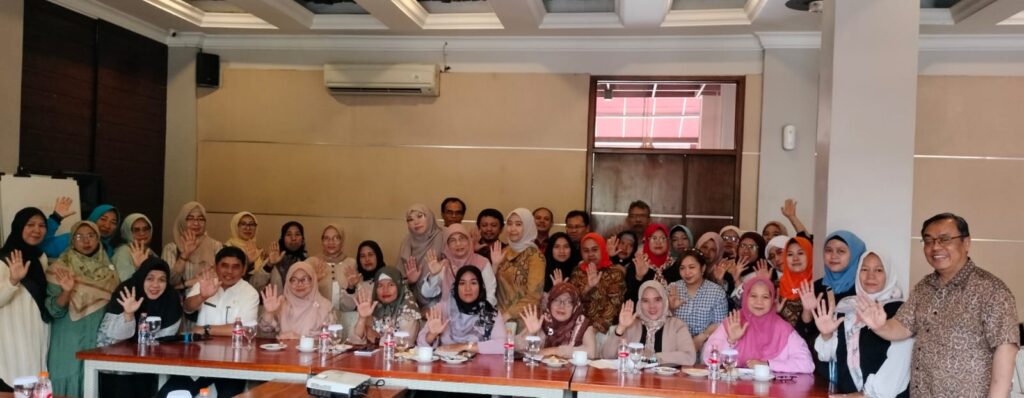Awareness, Action, Results: Managing Drug-Resistant Tuberculosis in Indonesia
Awareness, Action, Results: Managing Drug-Resistant Tuberculosis in Indonesia
By Tori Spivey

Two years ago, Ahmadi, 49, began experiencing a persistent cough, night sweats, and unexplained weight loss. After visiting a health facility, he was diagnosed with pulmonary tuberculosis (TB). “I continued the treatment for six months and was declared cured,” he recalls.

However, a few months later his symptoms returned—accompanied by even more weight loss and a relentless cough. “I knew that I was sick, but I had to work.” As his condition worsened, Ahmadi sought medical attention again and was diagnosed with drug-resistant TB (DR-TB). He needed another six months of intensive treatment to fully recover.
Indonesia has been implementing DR-TB treatment since 2009, but it remains a major concern for TB control efforts. DR-TB arises when TB bacteria become resistant to the most effective anti-TB drugs, most commonly rifampicin, often due to incomplete or inadequate treatment. These drug-resistant strains are more difficult and expensive to treat, contributing to the growing antimicrobial resistance (AMR) crisis.
Leveraging local health clinics in TB control
Ahmadi’s experience with DR-TB is just one of an estimated 31,000 in Indonesia in 2024. In 2023, only 40.3% of estimated DR-TB cases were diagnosed and notified. Among those, only 73% were enrolled in DR-TB treatment, falling short of the Ministry of Health’s 90% target. Moreover, just 55% of patients completed their prescribed treatment courses. To help address this challenge, the MSH-led USAID BEBAS-TB Activity supports the Indonesian Ministry of Health in strengthening TB detection and treatment efforts at the community health facilities level. By working with primary health care clinics, or puskesmas, USAID BEBAS-TB aims to detect TB early in patients like Ahmadi, preventing the development of more complex, drug-resistant cases.
For example, in July, the program convened health facilities across Medan City and Deli Serdang District in North Sumatra to identify barriers and new strategies for DR-TB treatment initiation at the primary health care level to help patients start treatment early. This led to the health facilities establishing a system for collecting and testing sputum samples with regular follow-up and monitoring of patients’ treatment. Additionally, health care workers have been trained on how to perform pulmonary examinations, interpret results, and conduct sputum induction tests to expand detection capabilities for DR-TB.
Advocacy and public awareness to amplify impact
Combating DR-TB requires more than just medical interventions. Stigma and misinformation continue to be significant obstacles. To improve awareness and support for TB elimination efforts, the USAID BEBAS-TB team partnered with the National TB Program to train Heads of Disease Control on how to advocate for TB control efforts. The training equipped 20 participants across 4 provinces with skills to analyze and present TB data, identify effective TB control policies, and build advocacy networks across USAID BEBAS-TB’s 4 target provinces. By the end of the training, each province had developed an action plan to advocate DR-TB issues to key stakeholders through social and mainstream media channels.

USAID BEBAS-TB continues to strengthen community resilience against DR-TB by building the technical skills of primary health care workers and advocating for coordinated, evidence-based approaches to control the spread of DR-TB. In East Java and North Sumatra, hospitals and puskesmas have been trained to administer BPaL/M to multidrug-resistant TB patients, a shorter, more effective treatment with a 90% success rate. Furthermore, in West and Central Java, a clinical audit and Monthly Interim Cohort Analysis across referral hospitals and districts revealed opportunities to monitor treatment quality and strengthen coordination with puskesmas to increase treatment enrollment rate and reduce DR-TB cases lost to follow-up.
Recovering from DR-TB is challenging, but Ahmadi’s determination to complete his treatment, along with the support he received from health workers and families, was vital for his recovery. These efforts are essential to safeguarding the effectiveness of DR-TB treatment regimens, ensuring that every patient has access to the care they need to overcome DR-TB and preventing the rise of more severe, resistant forms of the disease.
